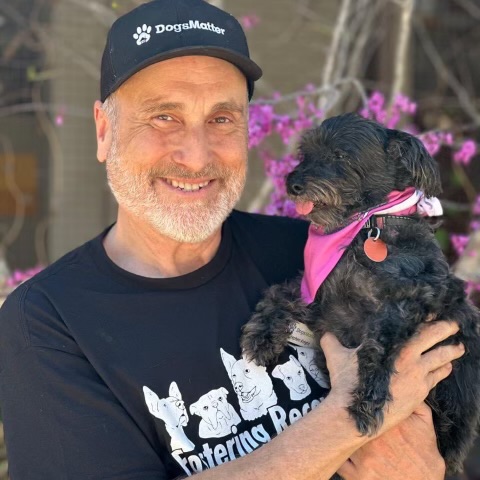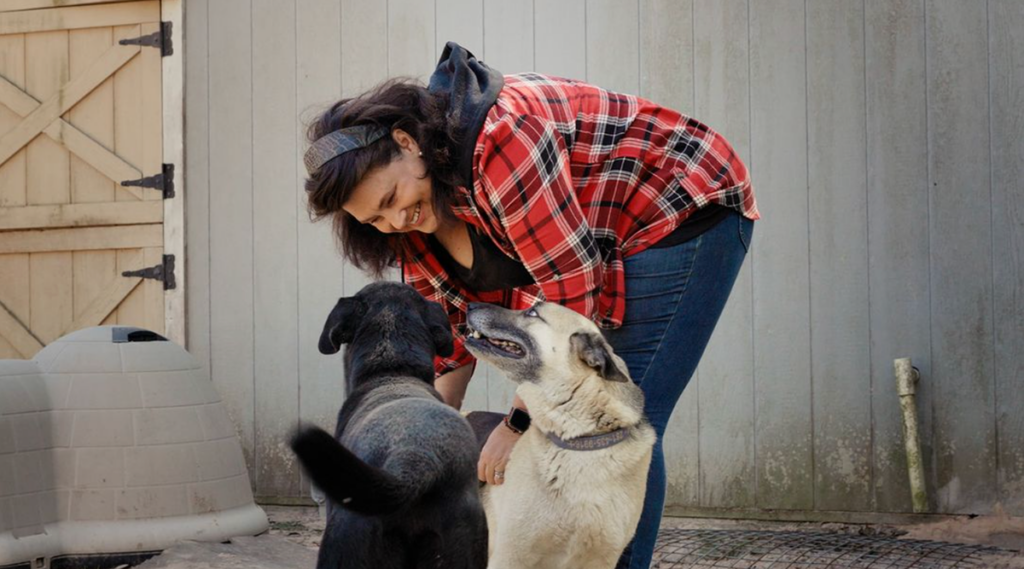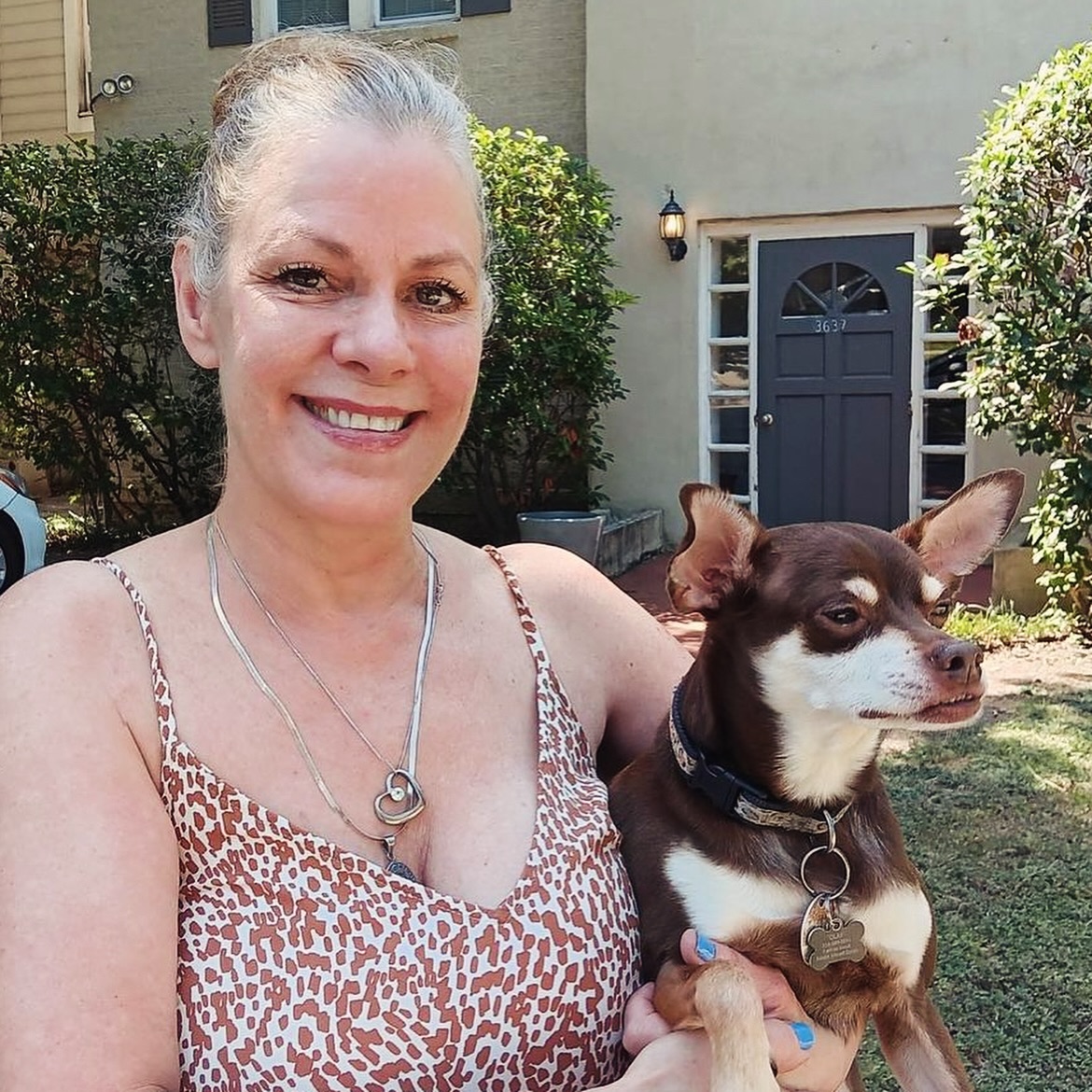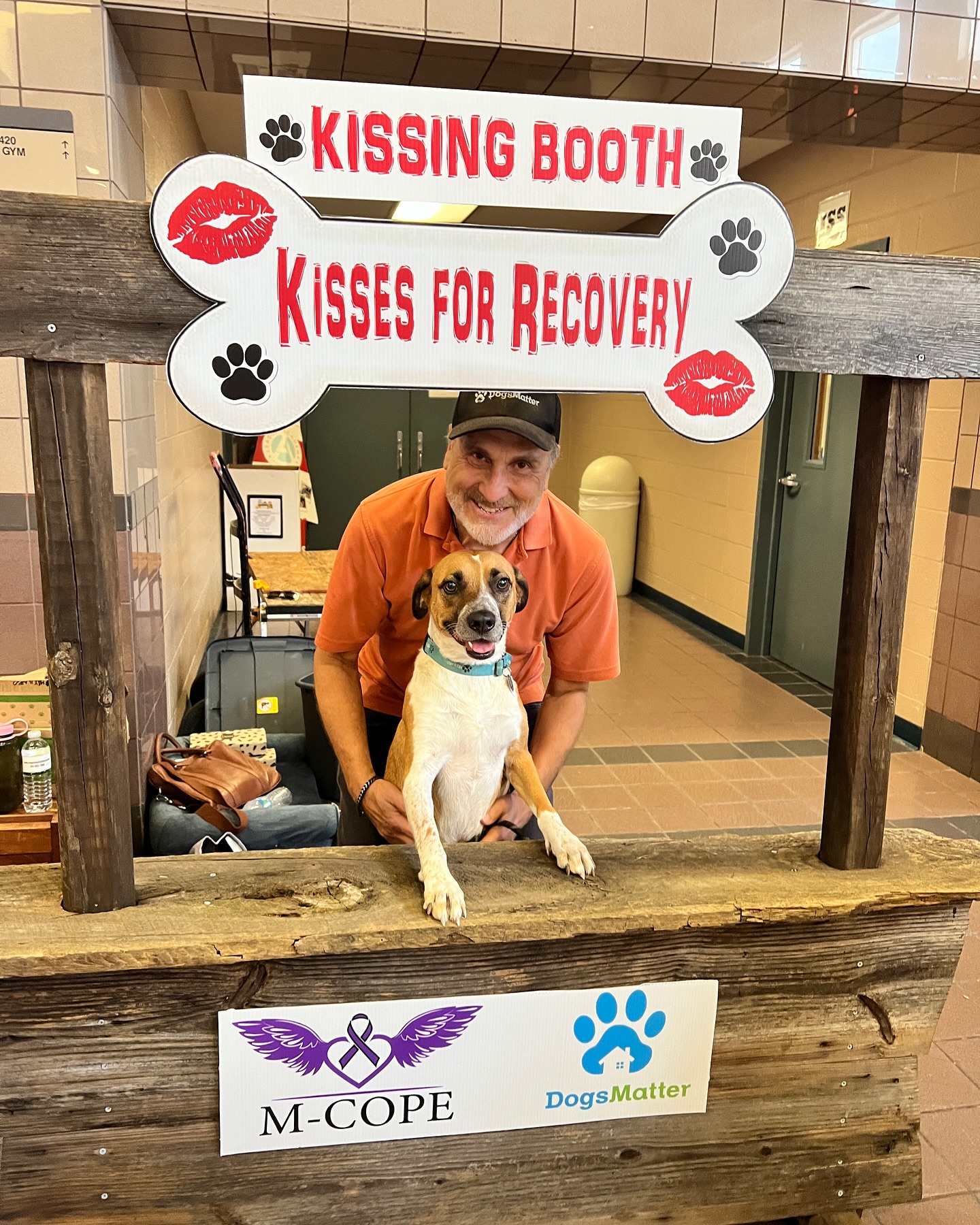Interview and video by Dulce Villa. Photos provided by Dogs Matter.
Since its founding in 2015, Dogs Matter has been on a mission to ensure that no one has to choose between getting help for addiction and keeping their beloved pet. With a unique model that combines rescue, rehab, and reunification, Dogs Matter provides a lifeline for both individuals and their dogs, offering a safe space for pets while their owners undergo in-patient treatment for drug and alcohol addiction. Executive Director Stephen Knight—who started the program after witnessing firsthand the struggles of clients with no safe place for their dogs—has seen the transformative power of keeping these bonds intact.
What began as a small initiative saving 20 dogs in its first year has since grown to serve over 900 dogs and their owners, thanks in large part to the program’s comprehensive Aftercare Program, which offers continued support for 12 months after treatment. As Dogs Matter anticipates further growth in 2024, the organization remains committed to helping more clients break free from addiction while knowing their four-legged companions are safe and ready to reunite. We caught up with Stephen, who shares his shares insights into the impact of pets on addiction recovery, the challenges faced by clients, and the plans for the future of Dogs Matter.

Dogs Matter is a very personal journey for me. Thirteen years ago, I decided to get sober and went to rehab. After rehab, I moved into a sober living apartment complex. One day, I got a knock on the door from a friend who had relapsed and needed to go back into treatment. She had nowhere to leave her dog, Jayde, and was asking me to drive her to the shelter to surrender her.
I looked into Jayde’s eyes, and we connected. At that moment, I said, “I think I’ll take her.” At the time, I was about eight months sober and going through a rough patch. Having Jayde suddenly in my life, with the responsibility of taking care of her, really helped my sobriety.
That experience gave me the idea to create a program for people who need to go to drug or alcohol rehab but have nowhere to place their dogs. My thought was that being able to reunite with their dog afterward could motivate them to stay in treatment and give them something to live for. And that’s how Dogs Matter started.
We have so many great success stories, but one that stands out happened just last November. A woman reached out to us through a friend. She was living in a tent with two dogs, Lucy and Gianna, and was struggling with addiction. She had lost everything—her family, her job, and her home. The only thing keeping her from going into treatment was her dogs.
We were eager to help her, so we took in her dogs and made sure they were cared for. Just two days later, she ended up in the hospital with pneumonia, and she nearly died. It was winter, and living outside had taken a serious toll on her health. From the hospital, she went to rehab, then to sober living, and she worked incredibly hard to turn her life around.
Last month, we were able to reunite her with her dogs. She now has almost nine months sober, a job, and just three weeks ago, she moved into her own apartment. But the story doesn’t stop there—she was also able to regain custody of her son, who started seventh grade this year and is now living with her.
None of this would have been possible if she had given up her dogs. They were the one thing she had left, and being able to keep them safe while she got treatment made all the difference. We really do save lives.

One of the biggest concerns our clients have when they apply to our program is the fear of handing their dog over to someone they don’t know. They worry, “Will I get my dog back?” And the answer is yes. But we also make it clear that they have to be dedicated to completing treatment in order to be reunited with their dog.
We verify the rehab program they’re entering and establish a point of contact there to stay in communication. It’s tough at first, but once they get to know us, especially me, because I’m in recovery and have been through this process, it helps to build trust. We’re very hands-on and intimate with our clients to reassure them that their dog will be well cared for.
We also take videos and pictures of their dog and send them to the rehab, especially when the client is struggling. Seeing their dog happy and cared for makes a big difference in building that trust. But we do have to start by establishing that connection and ensuring they feel confident in our care.

We’ve seen that for those who keep their dog and commit to sobriety, their chances of staying sober during the first year nearly double. The national average for staying sober the first year, without significant relapse, is around 30-35%, and that’s being generous. At Dogs Matter, we have about a 70% success rate. The responsibility and unconditional love that a dog provides really make a huge difference.
In fact, we’re in the process of formalizing our data. I’m actually heading to a state conference in San Antonio this week to discuss how we can incorporate this concept more formally into treatment and discharge plans. It’s clear that having a pet as part of recovery can be a powerful tool.
Our aftercare program begins after clients are reunited with their dog, and we offer support for up to 12 months. We provide a range of services, including food, medical care, and even help with pet deposits, because many of our clients are starting over from scratch. By the time they come to us, they’ve often lost everything, so we aim to be a safety net for both the client and their dog.
As part of the program, we assign recovery coaches who check in weekly to ensure they’re staying healthy and sober. We provide anything they need, whether it’s food or assistance with maintaining their recovery. By this point, they trust us—after all, we cared for their dog while they were in treatment—so it makes sense to continue that relationship through aftercare.
I’m also a substance abuse counselor, so I step in if they’re in crisis. We’ve found that the aftercare program is essential for maintaining long-term sobriety. If a client relapses or loses a job, we’re there to make sure the dog is taken care of. No matter what happens, they never have to worry about food or medical care for their dog during that first year, giving them time to get back on their feet and become self-sufficient.

Looking further into 2025, we’re hoping to establish a facility, depending on the support we receive from the community. Currently, we don’t have a dedicated location where someone can drop off their dog immediately if they decide to enter rehab. We want to create a one-stop center where individuals can bring their dog, receive support on the human side, and be connected to rehab services while their dog is cared for. The facility would offer daycare, training, and other necessary services for the dog until we find a foster family. The goal is to remove any obstacles that might prevent someone from entering treatment.
We’re very excited about the future, but achieving these goals will depend on the level of community support we receive.
foster families are a crucial part of our program, and we wouldn’t be able to operate without them. What’s unique about our program is that it’s temporary fostering, typically lasting 30 to 90 days, while the dog owner is in treatment and getting back on their feet. Foster families don’t have to worry about finding a permanent home for the dog, as the dog will be reunited with its owner.
Besides fostering, people can volunteer in other ways, like helping with transportation. While most of our work is in the Dallas-Fort Worth area, we’re the only program of this kind in Texas, so we sometimes need transportation support in places like Austin or Houston. Volunteers can also help take dogs to the vet or even foster them for a few nights or give them a day out if they’re being boarded. Additionally, we always need volunteers for our events or to help recruit more foster families. There are plenty of opportunities to get involved!
Dallas Doing Good is proud to continue our partnership with the Communities Foundation of Texas for North Texas Giving Day! This year, we’re spotlighting outstanding organizations that align with CFT’s focus areas—Health, Wealth, Living, and Learning.
Join us in supporting these impactful organizations. Your donations help drive innovation and support essential services in our community. Learn more and give today at Dogs Matter’s North Texas Giving Day page. Together, we make a difference!
Sign up with your email address to receive good stories, events, and volunteer opportunities in your inbox.